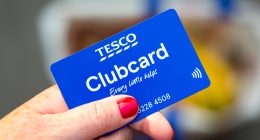MANY Brits may have already had a letter come through the door revealing their tax code for the year.
It’s worth checking which code this is and if it’s correct, or you could end up hundreds of pounds out of pocket.
You’ll have a tax code if you’re employed full-time or part-time, or receiving a private pension, yet millions of us don’t even bother to check if ours is correct.
The code is a mixture of numbers and letters and is used by your employer to work out how much tax you need to pay.
They will take the sum of money from your paycheck before it arrives in your account.
If you’re on the wrong tax code, you could see any extra cash you have overpaid refunded to you.
This year, some of the tax codes have changed, so it’s a good idea to get clued up on what they mean.
And you can check with some handy online calculators, as we explain all you need to know to find out your tax code this year.
How do I find out my tax code?
There are a number of ways you can check what your tax code is for the current tax year, which started April 6 2021 and runs until April 5 2022.
Your tax code will be displayed on your payslip, usually listed near your National Insurance number.
Your company has to provide you with a payslip, so if you’re not sure how to access it, ask your employer for guidance.
You can also use the government’s online tax checker tool to view your tax code.
What does my tax code mean?
Your tax code will be a combination of letters and numbers – here’s what they mean.
There will be three or four digits in your tax code – you need to multiply this number by 10 to see what you can earn tax-free a year.
The standard tax code for basic-rate tax payers (those earning between £12,501 and £50,000) has changed for the 2021/22 tax year.
It’s the most common code and used to be 1250L – now it’s 1257L.
So you need to multiply 1257 by 10 to find out what you can earn tax-free – which is £12,750 a year. This is called your personal allowance.
The letters in your tax code indicate how much you have to pay, and the L means that you are entitled to the basic personal allowance.
You might have a different letter in your tax code – we’ve rounded up what the other letters mean below.
What do the letters mean in my tax code?
THE letters in your the code on your payslip indicates how much tax you have to pay. Here’s our guide to what each of the letters mean:
- L You’re entitled to the standard tax-free Personal Allowance
- M Marriage Allowance: you’ve received a transfer of 10 per cent of your partner’s Personal Allowance
- N Marriage Allowance: you’ve transferred 10 per cent of your Personal Allowance to your partner
- S Your income or pension is taxed using the rates in Scotland
- T Your tax code includes other calculations to work out your Personal Allowance, for example it’s been reduced because your estimated annual income is more than £100,000
- 0T Your Personal Allowance has been used up, or you’ve started a new job and your employer doesn’t have the details they need to give you a tax code
- BR All your income from this job or pension is taxed at the basic rate (usually used if you’ve got more than one job or pension)
- D0 All your income from this job or pension is taxed at the higher rate (usually used if you’ve got more than one job or pension)
- D1 All your income from this job or pension is taxed at the additional rate (usually used if you’ve got more than one job or pension)
- NT You’re not paying any tax on this income
- Tax codes starting with K mean you have income that isn’t being taxed another way and it’s worth more than your tax-free allowance.
You won’t have to pay income tax if your annual wages are lower than your personal allowance, which is indicated by the letters NT in your tax code.
You may also see NT if you’re a self-employed contractor who is required to pay national insurance but not income tax.
How do I find out if my tax code is wrong?
You can check if your tax code is correct by using HMRC’s online tool or MoneySavingExpert’s free online tax calculator.
If it’s wrong, contact HMRC to let it know on 0300 200 3300. If it’s right, you don’t need to do anything.
According to tax investigation insurers PfP, research found that the best time of day to call is in the morning between 8.30am and 9.30am and early lunchtime between noon and 12.30pm.
The worst times to get in touch were between 4.30pm and 5pm – with callers being forced to wait 12 minutes to speak to an agent.
HMRC will write to you or email you if they change your tax code – and they will also write to your employer about any changes too.
Then, your updated tax code should show on your next pay slip.
How do I know if I’m owed a tax refund?
If you are due a tax rebate HMRC will let you know by sending you a letter called a P800 or a simple assessment letter.
P800 letters can also tell you that you haven’t paid enough tax, so don’t get too excited when one comes through your letter box.
You will only get a P800 after the tax year has ended – the letter won’t usually arrive until around September.
This letter will tell you if you can claim online through the government’s website.
If you claim online the money will be sent to your account in about five days.
Or you can wait for 45 days and the government will send you a cheque in the post.
Here’s how to earn up to £43,590 without paying tax.
We explain how the income tax threshold freeze will affect your wages and take home pay.
Meanwhile, thousands of parents will lose some or all of their child benefit payments under a stealth tax.
















